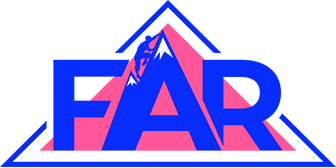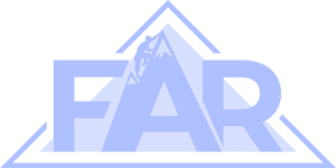Heroin is a highly addictive opioid that is two to five times stronger than morphine. Even if it is only used once, it can cause serious side effects that may be fatal. Since heroin is much more addictive than other drugs, people who use it are at a high risk of developing heroin use disorders.
At Focused Addiction Recovery in Wallace, North Carolina, our heroin addiction treatment center helps those who come to us recognize the signs of heroin abuse and provides the necessary treatment tools and addiction resources for recovery.
What Is
Heroin?
Heroin is an illegal opioid that’s made from morphine. In its purest form, it is a white powder that can be snorted or smoked. Black tar heroin is a harder, stickier type of heroin that has impurities. Users dissolve and dilute it before injecting it into their veins or muscles. Some users may mix heroin with cocaine.
How Many People Have
Heroin Use Disorders?
In the 2020 National Survey on Drug Use and Health, 0.3% of Americans (around 902,000 people) indicated that they had used heroin over the previous 12 months. The survey also showed that an estimated 0.2% of Americans (approximately 691,000 individuals) had heroin use disorders during that time.
In recent years, the largest increases in heroin use have been observed in young adults between the ages of 18 and 25. According to the CDC WONDER database, roughly 13,195 Americans passed away due to heroin overdoses in 2020. More than 19% of all opioid overdoses in the U.S. that year involved heroin.
How Does
Heroin Affect the Body?
Heroin activates the brain’s mu-opioid receptors. Located in the reward center of the brain, the receptors control pain, hormone release, and feelings of pleasure.
The activation of mu-opioid receptors triggers the release of dopamine, a “feel-good” neurotransmitter, and hormone. Dopamine levels impact motivation, arousal, sleep, attention, mood, and behavior.
Immediately after taking heroin, most people experience a pleasant feeling that’s known as a “rush.” Dry mouth, flushing of the skin, and heavy feelings in the arms and legs may follow. Some users could have nausea, vomiting, or severe itching.
These initial effects are often followed by drowsiness and impaired mental function. The user’s heart rate slows down, and his or her breathing rate becomes very slow. These changes may be life-threatening, and the user could go into a coma or develop permanent brain damage.
Repeated heroin use alters the body and the brain over time. In terms of physical health, regular heroin use could lead to serious lung complications, including pneumonia and tuberculosis. Users could experience constipation, irregular menstrual cycles, and sexual dysfunction. In addition, people who snort heroin may damage the tissues in their nasal passages, and they could perforate the nasal septum.
Studies suggest that regular heroin use causes the brain’s white matter to deteriorate, and this may lead to difficulties with handling stress, regulating behavior, and making decisions. Depression and antisocial personality disorder are particularly common for heroin users.
With regular heroin use, hormonal imbalances develop in the brain, and it’s very hard to reverse these changes. Since heroin is highly addictive, users may experience withdrawal symptoms a few hours after taking the drug.
When users go through the process of heroin withdrawal, they often experience some of these symptoms:
- Nausea
- Vomiting
- Diarrhea
- Abdominal pain
- Sweating
- Fever
- Insomnia
- Cold flashes
- Muscle and bone pain
- Restlessness
Generally, withdrawal symptoms peak roughly one to three days after the last dose of heroin. For most people, symptoms subside after a week. However, some users may continue to experience withdrawal symptoms for several months.
How Are Heroin Use Disorders Treated?
Medications and behavioral therapies are used to treat heroin use disorders. Since the withdrawal process can cause serious medical complications that increase the risk of relapse, inpatient treatment at a heroin addiction rehab center may be necessary. After detox and initial treatment, outpatient care helps clients avoid relapse.
What Medications Are Used for
Heroin Addiction Treatment?
Heroin use disorders are treated with the same medicines that are used to treat other opioid use disorders. These medicines include methadone, buprenorphine, and naltrexone.
Methadone is a synthetic opioid, and it is taken by mouth. First used in the 1960s, methadone is particularly beneficial for people who don’t respond to other medicines. It is only available at approved treatment centers, and patients must take it daily.
As a partial opioid agonist, buprenorphine relieves cravings for heroin. It doesn’t produce the highs or serious side effects that are associated with other opioids. In the treatment of heroin use disorders, buprenorphine may be combined with naloxone. Patients take the combination drug as an oral tablet. The combination discourages patients from trying to get high by injecting the medicine. If a patient tries to inject the medicine, he or she will experience withdrawal symptoms. Patients must take oral buprenorphine every day.
In addition to oral buprenorphine, subdermal buprenorphine implants and buprenorphine injections are available. Healthcare professionals place subdermal buprenorphine implants just beneath the patient’s skin. The implants are effective for six months. With buprenorphine injections, patients need to have a new injection every month.
Naltrexone belongs to a class of medicines called opioid antagonists. It works by blocking the action of opioids. It doesn’t lead to physical dependence, and it doesn’t cause sedation. Patients must take oral naltrexone daily. As an alternative, a long-acting form of naltrexone is available. Patients receive this form of naltrexone as a monthly injection, and treatment starts after they complete the withdrawal process. Research indicates that naltrexone injections may reduce the risk of relapse.
What Behavioral Therapies Are Used for Heroin Addiction Treatment?
Cognitive-behavioral therapy (CBT) and contingency management are two of the most commonly used behavioral therapies for heroin use disorders. Studies have shown that these methods are effective, particularly when they’re used in combination with medications.
CBT for substance abuse helps clients learn to reframe their thoughts and modify their behaviors. For heroin use disorders, clients may have individual and group therapy sessions. After identifying negative thinking patterns, participants work with their therapists to develop healthier mindsets and effective coping mechanisms so that they can avoid heroin.
Contingency management uses a points-based system to reward clients for negative drug tests. With each negative drug test, clients receive points. They exchange their points for prizes, including gift cards, meals, and clothing. Contingency management is a particularly important part of outpatient treatment, and it helps patients comply with their treatment programs.
How Can I Find the Right
Heroin Addiction Treatment Center?
To find the ideal heroin rehab program, it’s important to consider overall health, co-occurring medical or mental health conditions, finances, and insurance. You’ll also want to think about the location of the rehab facility, the credentials of the staff, the success rate of the program, and reviews from previous clients.
Your primary care doctor can help you understand whether you need inpatient or outpatient treatment. If you have other chronic health conditions or mental health concerns, your doctor will be able to recommend heroin addiction treatment centers that have the expertise to treat you safely. Your physician will also be able to give you advice about the programs that have the best treatment approaches and success rates.
You can contact your insurance company to find out about coverage options for heroin addiction treatment. If you are considering heroin rehab programs in other states, it is especially important to get in touch with your insurance company. You may need to get prior approval for your treatment.
Local support groups may be able to give you a list of treatment facilities in your area. To find out about staff credentials, success rates, and client reviews, you can conduct online research. If you’re a member of a support group, you may want to ask your sponsor or other participants for treatment facility recommendations.
For additional help with finding heroin rehab programs, you can search the listings on the Substance Abuse and Mental Health Services Administration’s website. They provide lists of treatment programs in every state, and they include information for uninsured patients.
How Could Treatment at
Focused Addiction Recovery Help Me?
Focused Addiction Recovery is a heroin addiction rehab facility in Wallace, North Carolina. It has been in operation for more than 20 years. At Focused Addiction Recovery, each client receives a personalized treatment plan. Staff members work to make each person feel comfortable during the detox and recovery process.
In addition to regular outpatient care, Focused Addiction Recovery provides outpatient detox, partial hospitalization, and intensive outpatient care. Dual diagnosis treatment is available for individuals with multiple health conditions, and the center has sober living homes, relapse prevention programs, and recovery meetings.
At the Focused Addiction Recovery treatment center, clients can receive buprenorphine, naltrexone, and other medicines to ease the symptoms of heroin withdrawal. Cognitive-behavioral therapy and dialectical behavioral therapy are two of the therapies provided at the center, and clients have individual and group therapy sessions. Family therapy sessions are also offered.
If you are looking for a heroin rehab program, contact us today. At Focused Addiction Recovery, our caring, knowledgeable staff members are dedicated to helping you find the treatment that meets your needs. We can answer any questions you may have about our services, and we would be honored to be part of your rehab journey.
https://nida.nih.gov/publications/research-reports/heroin/what-heroin
https://drugpolicy.org/drug-facts/what-is-heroin
https://nida.nih.gov/publications/drugfacts/heroin
https://nida.nih.gov/publications/research-reports/heroin/effects-of-heroin-on-body
https://my.clevelandclinic.org/health/articles/22581-dopamine
https://drugpolicy.org/drug-facts/signs-heroin-withdrawal
https://nida.nih.gov/publications/research-reports/heroin/what-are-treatments-heroin-use-disorder
https://www.ncbi.nlm.nih.gov/books/NBK430736/
https://www.cdc.gov/opioids/basics/heroin.html
https://nida.nih.gov/publications/research-reports/heroin/what-are-medical-complications-chronic-heroin-use

